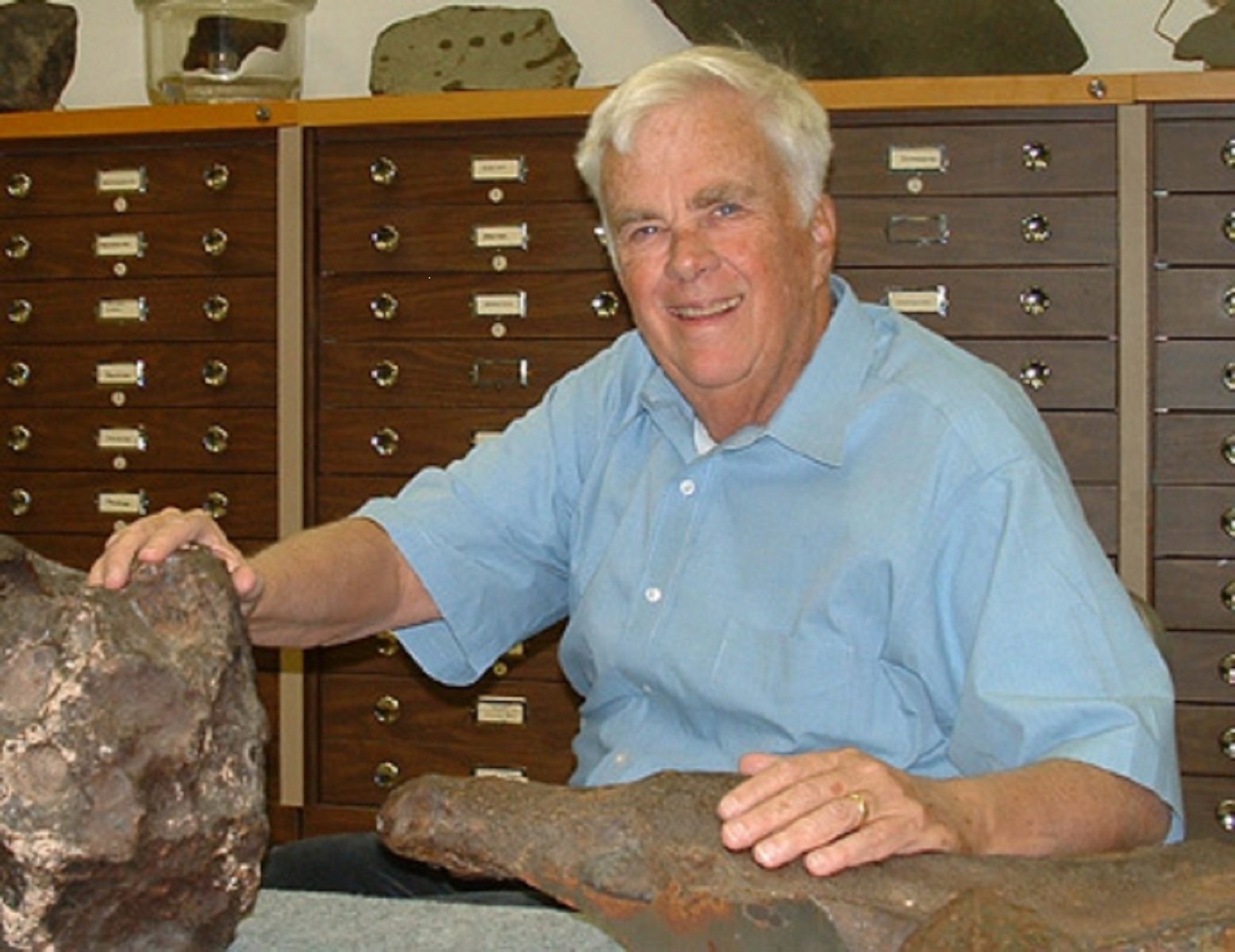In Memory: Center Founding Director Carleton B. Moore
It is with great sadness that we bid a final farewell to Center founding director Professor Carleton B. Moore, who passed away February 10th.
Carleton moved to ASU in 1961 at the request of George Fales (longtime meteorite enthusiast, ASU benefactor, and Center philanthropist) to head the newly formed Center for Meteorite Studies. Over the next several decades, Moore not only expanded the Center and ASU’s research portfolio, but directly affected the course of science history.
It was Moore who set up the very first carbon isotope analyses at NASA’s Lunar Receiving Laboratory to study samples returned by the Apollo missions, after his labs at ASU proved to be the only ones in the world capable of the difficult analyses. The analyses of Apollo samples set the precedent for the study of all types of planetary materials by researchers in the future.
Moore set up and opened the first Meteorite Museum at ASU, making the Center’s incredible collection of space rocks available for public viewing as he continued to acquire and study new meteorites.
It was Moore’s team who first identified organic molecules in extraterrestrial material, in 1969, pushing the search for the origins of life on Earth in a new direction.
In 1981, Asteroid 5046 Carletonmoore was named in recognition of Moore’s immense contributions to the science of meteoritics, and the mineral carletonmooreite, discovered at ASU, was named in his honor in 2021.

Carleton officially retired in 2003. This only meant he came in a little less often to ASU, however, and he was regularly on campus for the next 15 years, checking in on the collection he built, bringing chocolates to Center researchers, and having lunch at the University Club. His immense knowledge of meteoritics and the ASU collection were especially valued by Center researchers after his retirement, who joked about needing to record everything he said (and actually did just that on more than one occasion – many of these conversations are preserved at ASU).
Over the course of his storied career, Carleton touched innumerable lives. He encouraged young scientists just starting their own meteoritics journeys, mentored undergraduate and graduate students who went on to prosperous careers of their own, and was a favorite at outreach events with the public, where he gracefully took on the identification of hundreds of potential meteorites (most of which were meteorwrongs) and gifted surprised youngsters with small meteorites from his personal collection. He will be missed, but will live on in the hearts of all who knew him, in the many scientific advances he published, in the meteorite collection he built, and in the research center he led for over 40 years.
Read more about Carleton B. Moore’s contributions to science at ASU, here.
Interment of the ashes will be at YMCA of the Rockies, Estes Park, Colorado at a future date. Donations in his name may be made to the Boyce Thompson Arboretum or Audubon Southwest.